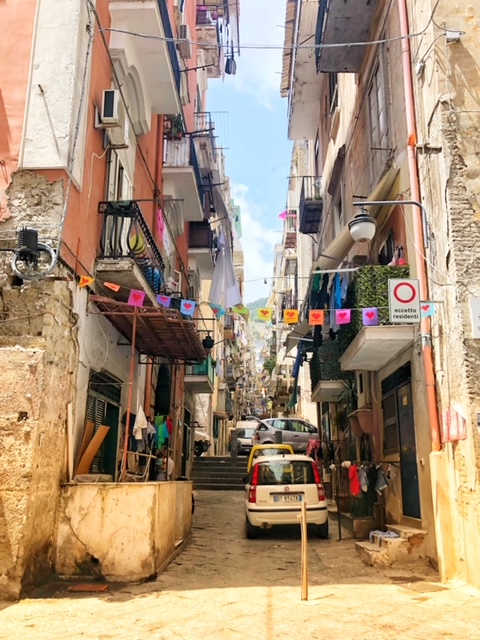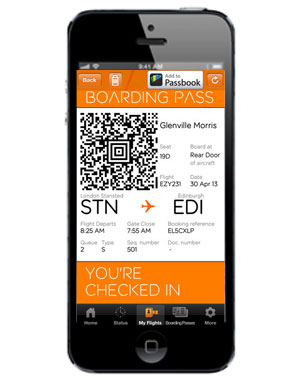Traveling can be eye opening, relaxing, invigorating, and life changing. It can also be unpredictable, chaotic, and confusing. Whenever taking on a big project or task in life, it is best to do some preventative damage control.
When you have got to take the kids out to do your errands, you bring snacks, toys, and other essentials just in case. For a long road trip, you would fill up your gas tank and get a check up at the mechanic.
As a traveler, there are things you can do to prepare before you leave and while you are on the ground. Here are some of my easiest and most practical suggestions to travel stress free.
1 Pack light
With the new trend of minimalism, it is getting easier to Marie Kondo your way out of that stuffed closet. Millions of people are following this trend as it has been widely diffused via her book and Netflix show “Tidying up with Marie Kondo”.
While I admit I did watch the show and Kondo’d my way into a functioning kitchen pantry again, it reinforced something I have long thought to be true: packing light is the key to happiness on a trip of any length. Think about it, the last time you traveled, did you wear and use all of the things you brought multiple times, or did you not even take some things out of your bag at all?
Picture these two opposite scenes.
Scene one:
It is mid-July in Naples. 95 degrees Fahrenheit with 96 percent humidity. You exit the airport, extremely disoriented due to jet lag and the incremental heat, and look for a taxi under the Neapolitan sun.
“Damn, it’s hot,” you mutter to yourself, sweat dripping into your eye, burning, and blinking doesn’t help. You see the taxi line. It’s long, and you get in the end of the queue with the other tourist cattle waiting to be rounded up.
You and your travel partner approach the front of the line with one checked bag each. Since they are not carry-on sized bags, the taxi you are waiting for denies you. He then scuffles you over to his colleague who has a van.
You drag your suitcases up the narrow sidewalk and have trouble navigating the new territory. There are lots of passers-by and not enough room for you, your travel partner, and your two gigantic suitcases.
Taxi time
In the taxi there is no AC. The driver goes over the speed limit and jerks in and out of lanes on the main periphery road, then pulls some daredevil shit once you get inside the historic center.
Because much of the center is pedestrian only, the driver leaves you at the designated taxi point for your area of town. It is 95 degrees.
You and your travel partner exit the taxi in discombobulated fashion, walk a few hundred yards, and take a right onto the main drag, Spaccanapoli. There are no sidewalks. No personal space. And there are cobblestones.
Your arm gets jerked up and down, practically rocking your socket, and you keep bumping into people with your arms, and then your bags. Your hand starts to sweat and you loose grip of your 40-pound bag. It falls over, absorbing the miscellaneous liquid sitting in between the cobblestones.
Arrival
You get to the apartment and its self check-in (score!). The apartment is on the first floor, but in Italy, the ground floor is 0, and the next floor is the first floor. You must haul your 40 pounds of shit up 85 stairs.
A wave of regret takes over you; skipping all those morning workouts and the bottle of champagne consumed on the airplane. You enter the apartment, pat yourself on the back for a job well done, and spend two hours unpacking, getting yourself oriented, showering, and deciding what today’s adventure will be.
Scene 2:
It is mid-July in Naples. 95 degrees Fahrenheit with 96 percent humidity. You exit the airport, extremely disoriented due to jet lag and the incremental heat, and look for a taxi under the Neapolitan sun.
“Damn, it’s hot,” you mutter to yourself, sweat dripping into your eye, burning, and blinking doesn’t help. You see the taxi line. It’s long, and you get in the end of the queue with the other tourist cattle waiting to be rounded up.
You and your travel partner approach the front of the line with your packed light carry on bags. Each of your bags is about 10 pounds. You throw your bags in the trunk and get in the back seat of the taxi.

Taxi time
In the taxi there is no AC. The driver goes over the speed limit and jerks in and out of lanes on the main periphery road, then pulls some daredevil shit once you get inside the historical center.
Because much of the center is pedestrian only, the driver leaves you at the designated taxi point for your area of town. It is 95 degrees.
You and your travel partner exit the taxi in discombobulated fashion, walk a few hundred yards, and take a right onto the main drag, Spaccanapoli. There are no sidewalks. No personal space. And there are cobblestones.
You pull your small, carry-on sized bag and leisurely stroll, ducking in and out of people’s way, admiring the chaos around you. Your travel partner decides to convert his wheely bag back into a backpack, as it is easier while navigating the streets.
Arrival
You get to the apartment and its self check-in (score!). The apartment is on the first floor but in Italy, the ground floor is 0, and the next floor is the first floor. You take your suitecase by its handles like a duffel bag, and walk up the 85 stairs to your door.
You enter the apartment, pat yourself on the back for a job well done, and spend 45 minutes unpacking, getting yourself oriented, showering, and deciding what today’s adventure will be.
Conclusion
Which scene do you like better? What tone would you like to set for the beginning of your trip? You deserve to have an easy transition and to prepare yourself enough before your trip so that you don’t need to worry about as many things, therefore giving you more opportunities to be free and wander.
Consider that when you travel, you are probably going to be moving from place to place every few days. The time it takes to pack, unpack, and repack is severely extended when you choose to bring a larger luggage that you need to check. When you know you can check a bag, you will always bring more stuff. More useless stuff.
Even if you are not moving around at all during your stay, you run the risk of your bag getting lost if you do check it, being a bigger target for pickpockets, and being extremely uncomfortable during your journey from airport to lodging. Want to learn how to pack light like a pro? Click here to read my detailed blog post about it!
2 Mobile check in + screen shot

This easy trick can save you time and energy at the airport and has become the most popular way for all my friends and family to get their boarding pass. Twenty-four hours before your flight, use the airline’s mobile app or website to see if you can check in online.
Depending on the airline, you will be able to print your boarding pass or receive a mobile boarding pass with a barcode right on your phone. You will need internet access to be able to show your ticket again. I usually take a screen shot of the mobile ticket so I don’t need to worry about slow data or internet connections.
If you packed light and don’t need to check a bag, you will literally be able to get out of your taxi and walk up to the security gate to get into your terminal.
3 Organize your transport and lodging information
Another super easy way to keep track of all your booking info. I made a spreadsheet (see here) for a six- week trip I took in 2019. I was changing locations every two to six days and had so many places I was staying that it was really hard to keep track.
To better organize myself, I created the spreadsheet, and in doing so also made sure that I always had the information available. Printing out the spreadsheet and keeping it with you at all times is a great tool to ease the mind. If your phone dies or you are not able to access an electronic version, you know you always have every piece of info in your wallet or bag.
I also shared the document with friends and family since I was traveling solo.
Some important pieces of information to include on your spreadsheet are; timetables and dates, confirmation numbers, flight numbers, name and telephone of lodging, and addresses.
4 Never be afraid to ask for help
I admit that this is a travel piece of advice I’m still working on. So far, I have based myself in European travel. Because I speak many romance languages, it super accessible for me to interact with people wherever I am traveling. My stubborness thinks that because I travel frequently as a multi-lingual, I should not have to ask anyone for help. Wrong!
If you are lost, unsure which bus or train to catch, or how long it will take to get somewhere, ask for help. It is better to ask people who work in businesses. You can be sure they know the area and also that they do not scope you out for a potential toursit scam victim.
I am by no means saying you will get mugged in Europe, but it can happen to anyone. We can avoid this in many ways. Tourists get pegged easily by what they wear and how they act. So, take extra precautions to stick out less and also ask workers or police officers for help should the need arise. People are more willing to help than you think.
5 Don’t overplan
Let yourself wander! A big mistake many travelers make is over-planning each day of their trip. This is stressful for a few reasons. The first reason is that you are not leaving any room for error. Perhaps you miss the bus, take a wrong turn, or end up having a two-hour lunch and missing your tour reservation.
Plans get messed up. Not everything will go exactly as planned, so make sure you leave room for the mess ups.
Another reason you shouldn’t plan each part of each day is because you will always be in a rush. Constantly being on a schedule is something you already do on the daily, so why do it when you travel too?
You have no work day to get to on time. There’s no need to do your errands quickly because you’ve got to go home to feed the cats. By planning one intent-full activity every day, you will have enough time to wander and you won’t feel like you’re on a strict schedule.
Slow travel
Lastly, you need to try to live like a local, at least a little bit. When you are continuously on your way to the next site, you induce a sort of tunnel vision that leads your mind to only focus on the task at hand. You are not able to take in your environment, and you will surely miss out on some amazing experiences.
To truly understand where you are visiting, you need to take in the important cultural and historical sites as well as the flow of the people who are going about their day.
Spend time shopping at local food markets instead of tourist trinket shopping. Visit a local art exhibit in the artist’s studio. Sit and have a coffee break for two hours with friends like a real European. Study your surroundings, and follow suit!
This list is not an automatic guide to a stress-free trip. Stuff is always going to happen to mess up your plans, and that’s okay. If you want to use some, all, or none of these tips, make sure you have a game plan so you can enjoy your wandering as best you can.

